 W
WPrahlad Keshav Atre, popularly known as Āchārya Atre, was a prominent Marathi writer, poet, educationist, founder–editor of Maratha, and above all, a noted orator.
 W
WRaja Badhe (1912–1977) was a Marathi poet from Maharashtra, India. He first made his name in Nagpur as a poet. Later he moved to Mumbai. He worked for All India Radio for some time.
 W
WChangdev Maharaj was a mystical yogi turned saint who is believed to have lived in the village of Vateshwar along the banks of the Tapti River for 1,400 years. Per popular belief, Changdev Maharaj achieved Bhuta Siddhi based on his yogic powers and used these powers to perform various supernatural acts. Even though Changdev Maharaj himself is believed to have had held godly status and followers, his current following is mostly amongst Varkaris due to his association with Dnyaneshwar and Muktabai.
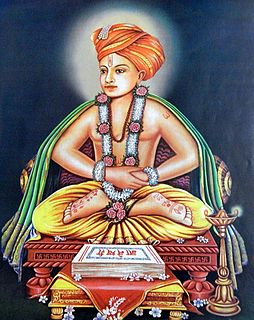 W
WSant Dnyaneshwar, also referred to as Jnaneshwar, Jnanadeva, Dnyandev or Mauli or Dnyaneshwar Vitthal Kulkarni (1275–1296) was a 13th-century Indian Marathi saint, poet, philosopher and yogi of the Nath Vaishnava tradition. In his short life of 21 years, he authored Dnyaneshwari and Amrutanubhav. These are the oldest surviving literary works in the Marathi language, under the patronage of the Yadava dynasty of Devagiri, and these are considered to be milestones in Marathi literature. Sant Dnyaneshwar's ideas reflect the non-dualistic Advaita Vedanta philosophy and an emphasis on Yoga and oneness of Vishnu and Shiva. His legacy inspired saint-poets such as Eknath and Tukaram, and he is one of the founders of the Varkari (Vithoba-Krishna) Bhakti movement tradition of Hinduism in Maharashtra. Saint Dnyaneshwar disappeared in 1296.
 W
WSant Eknath, commonly known as Sant (saint) Eknath was an Indian Hindu saint, philosopher and poet. He was a devotee of the Hindu deity Krishna and is a major figure of the Warkari tradition. Eknath is often viewed as a spiritual successor to the prominent Marathi saints Dnyaneshwar and Namdev.
 W
WManik Godghate, popularly known by his pen name Grace, was a Marathi prose writer and poet. He is most popular as lyricist of the Marathi song "Bhaya Ithale Sampat Nahi", which was sung by Lata Mangeshkar as the title track for the TV serial Mahashweta. His book Vaaryane Halte Raan was awarded the prestigious Sahitya Akademi Award in 2011.
 W
WAkshay Indikar is an Indian filmmaker, cinematographer, writer and editor from Solapur, Belonging to the nomadic folk artist family from the state of Maharashtra, India.
 W
WArun Krushnaji Kamble was an Indian Marathi language writer, professor, Politician, and Dalit activist. Arun Kamble, President and one of the founding members of Dalit Panther of India, worked as a Head of Marathi department at University of Mumbai. He was the National General Secretary of Janata Dal. He took many major decisions in favour of Dalit, Backward Class and Minorities.
 W
WLokshahir Bashir Momin Kavathekar, popularly known as B.K.Momin or Momin Kawathekar is a Marathi language poet, writer from Pune district of Maharashtra. He was conferred with the 2017-18 Vithabai Narayangavkar Jeevan Gaurav Puraskar by Government of Maharashtra for his contribution in the field of folk art, literature and culture.
 W
WKrishnaji Keshav Damle was a Marathi poet from Malgund, Ratnagiri Maharashtra, India, who wrote poetry under the pen name Keshavasuta or Keshavsut कृष.
 W
WSandeep Khare is a Marathi poet, performing artist, actor, singer-songwriter, copywriter from Pune. So far he has published 3 of his books which are poetry collections, namely, 'Kadhi He..Kadhi Te..', 'Maunachi Bhashantare'.
 W
WArun Balkrishna Kolatkar was an Indian poet who wrote in both Marathi and English. His poems found humour in everyday matters. Kolatkar is the only Indian poet other than Kabir to be featured on the World Classics titles of New York Review of Books.
 W
WVishnu Vāman Shirwādkar, popularly known by his pen name, Kusumāgraj, also known as Vi. Vā. Shirwadkar, was an eminent Marathi poet, playwright, novelist, short story writer, apart from being a humanist, who wrote of freedom, justice and emancipation of the deprived, In a career spanning five decades starting in pre-independence era, he wrote 16 volumes of poems, three novels, eight volumes of short stories, seven volumes of essays, 18 plays and six one-act plays. His works like the Vishakha (1942), a collection of lyrics, inspired a generation into the Indian freedom movement, and is today considered one of the masterpieces of Indian literature, apart from his play, Natsamrat, which has an important place in Marathi literature. He was the recipient of several State awards, and National awards including the 1974 Sahitya Akademi Award in Marathi for Natsamrat, Padma Bhushan (1991) and the Jnanapith Award in 1987; he also served as the President of the Akhil Bharatiya Marathi Sahitya Sammelan held at Margao in 1964.
 W
WGajānan Digambar Mādguḷkar was a Marāthi poet, lyricist, writer and actor from India. He is popularly known in his home state of Mahārāshtra by just his initials as Ga Di Mā (गदिमा). He was awarded Sangeet Natak Akademi Award in 1951 and Padma Shri in 1969. He has written 157 screen plays and over 2000 songs in his career. He was called Ādhunik Valmiki of current era due to his composition of Geet Rāmāyan as the most notable work. 2019 is celebrated as his Birth Century year. Government of Maharashtra hosts various events and festivals to grace the occasion.
 W
WNagraj Popatrao Manjule is an Indian film director, actor, producer, scriptwriter, poet, screenwriter, filmmaker and he works in the Marathi Cinema, best known for his Marathi film Sairat, short-film Pistulya for which he received National Film Award in Non-Feature Film category.
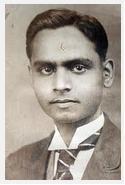 W
WBal Sitaram Mardhekar was a Marathi writer who brought about a radical shift of sensibility in Marathi poetry. He was born in a town called Faizpur in the Khandesh region of Maharashtra.
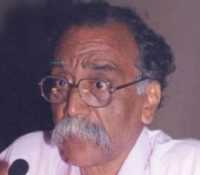 W
WBhalchandra Vanaji Nemade is an Indian Marathi language writer, poet, critic and linguistic scholar. Beginning with his debut novel Kosala, Nemade brought new dimensions to the world of Marathi literature. This was followed by a tetralogy consisting of novels Bidhar, Hool, Jareela and Jhool. In 2013, Nemade published his magnum opus titled Hindu: Jagnyachi Samruddha Adgal which is regarded as his masterpiece. Nemade is a recipient of the Sahitya Akademi Award as well as the Jnanapith Award, the highest literary honour in India. In 2013, he was awarded the Padma Shri.
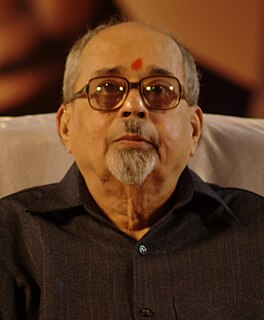 W
WMangesh Keshav Padgaoankar was a legendary Marathi poet from Maharashtra, India.
 W
WBhimrao Panchale is a Marathi ghazal singer from the state of Maharashtra, India. He is known as Ghazal Nawaz for his exposition of the ghazal and its adaptation to the Marathi language.
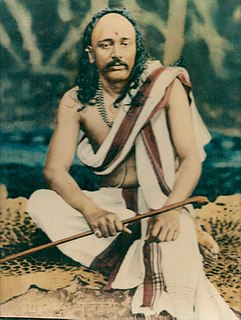 W
WPant Maharaj, born Dattatreya Ramchandra Kulkarni, was a Hindu yogi and guru in the Belgavi region of India and is regarded by his devotees as a saint and an incarnation of Dattatreya.
 W
WWasudev Waman Patankar, popularly known by the name Bhausaheb Patankar, was a prominent Marathi shayar, and one of the first to pen Marathi shayari, until then Shayari was an outcome of Urdu language. W.W Patankar was an Advocate by profession.
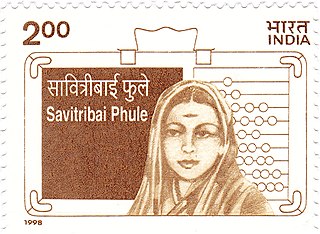 W
WSavitribai Phule was an Indian social reformer, educationalist, and poet from Maharashtra. She is regarded as the first female teacher of India. Along with her husband, Jyotirao Phule, she played an important and vital role in improving women's rights in India. She is regarded as the mother of Indian feminism. Savitribai and her husband founded one of the first Indian girls' school in Pune, at Bhide wada in 1848. She worked to abolish the discrimination and unfair treatment of people based on caste and gender. She is regarded as an important figure of the social reform movement in Maharashtra.
 W
WSamarth Ramdas, also known as Sant (saint) Ramdas or Ramdas Swami or simply Ramdas was an Indian Marathi Hindu saint, philosopher, poet, writer and spiritual master. He was a devotee of the Hindu deities Rama and Hanuman.
 W
WShrikrishna Raut is one of the well-known poets of today's Marathi poetry.
 W
WSadanand Rege सदानंद रेगे was a Marathi poet, playwright, short-story writer, translator, cartoonist and painter. He was born in Rajapur, Ratnagiri, Maharashtra.
 W
WVinayak Damodar Savarkar was an Indian politician, activist, and writer. He developed the Hindu nationalist political ideology of Hindutva while imprisoned at Ratnagiri in 1922. He was a leading figure in the Hindu Mahasabha.
 W
WSheikh Muhammad (1560–1650), also known as Shekh Mahammad (Mohammad), Sayyad Shaikh Mahammad Qadiri, Shaikh Muhammad Shrigondekar, and Sheikh (Shekh) Mahammad-baba, was a Muslim saint-poet who is venerated by Hindus. He is considered the most well-known Marathi Muslim poet. He is the author of the Yoga-samgrama (Yoga-sangrama).
 W
WGuru Thakur is a contemporary, Marathi poet, lyricist, script writer, actor and playwright. Guru was born and brought up in Mumbai, Maharashtra, India. While he began his career as a newspaper columnist, cartoonist, caricaturist and voiceover artist he has evolved and made a name as a poet, lyricist and script writer. His early career includes a short stint at Marmik, Marathi weekly and newspapers Tarun Bharat, Pudhari, Maharashtra Times and Navakaal. His achievements include script writing for the television show 'Shriyut Gangadhar Tipare', movie Aga Bai Arrecha, play 'Bhaiyya Haat Paay Pasari' and most recent movie Natarang. He received 'Zee Gaurav Award' and 'V. Shantaram Award' as Best Lyricist for the Song 'Khel Mandla' from the movie Natarang.
 W
WSant Tukaram Maharaj was a 17th-century Marathi poet and Hindu sant (saint), popularly known as Tuka, Tukobaraya, Tukoba in Maharashtra. He was a Sant of Varkari sampradaya in Maharashtra, India. He was part of the egalitarian, personalized Varkari devotionalism tradition. Sant Tukaram Maharaj is best known for his devotional poetry called Abhanga and community-oriented worship with spiritual songs known as kirtans. His poetry is devoted to the god Vithoba.
 W
WVishnu Surya Naik Wagh was a poet, writer, dramatist, journalist, politician and management consultant/ trainer, hailing from the coastal state of Goa, India. He had been a Member of the Legislative Assembly in Goa from 2012 to 2017 as a member of the Bharatiya Janata Party. Owing to his fragile health, he had been on a break from his active career since 2016, until his death in 2019. His book, Sudhir Sukta, was a topic of much debate in 2017—2018 for its offensive language and content.